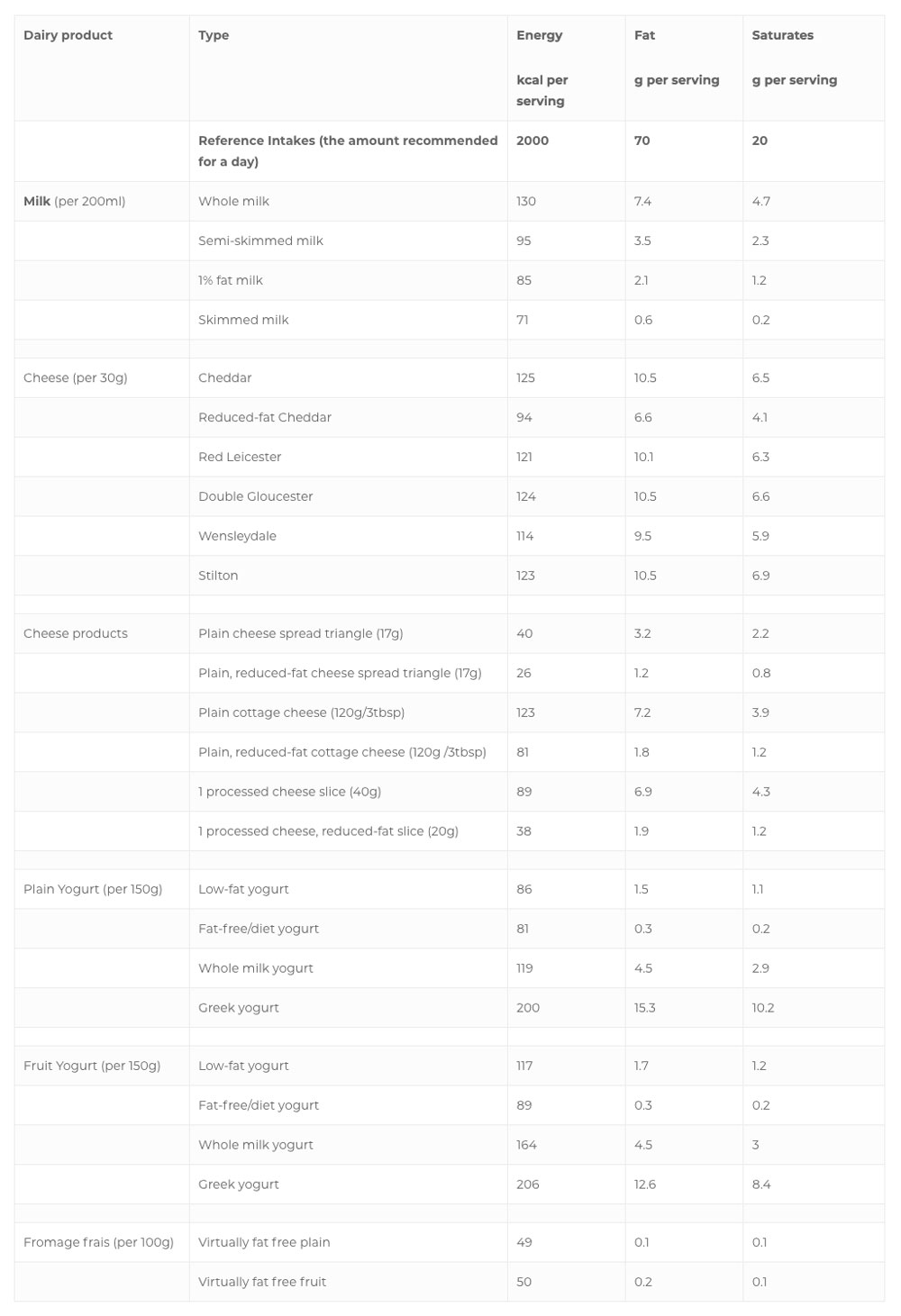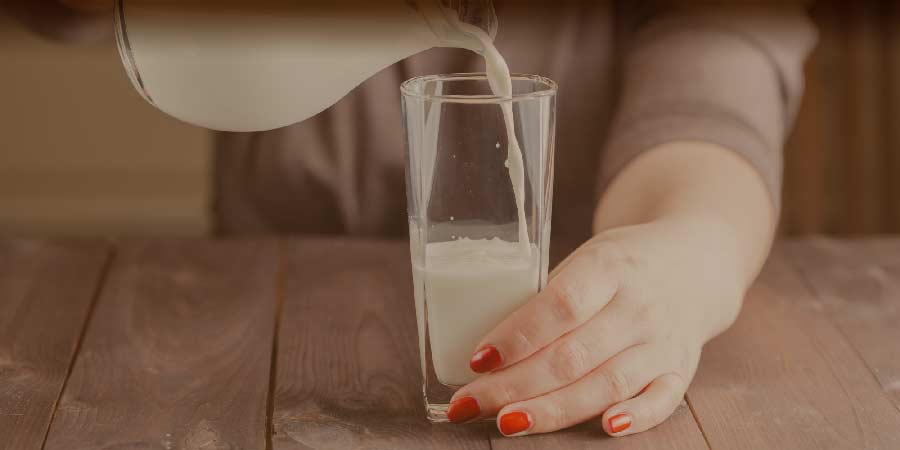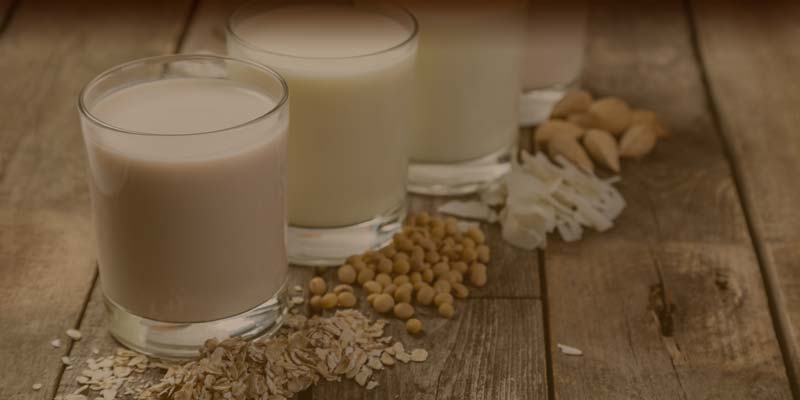Whether you want to lose weight, gain weight or maintain a healthy weight, there’s a dairy product to suit your needs. Milk, cheese and yogurt all come with a variety of fat contents, which in turn means different calorie choices. Quite simply, less fat means fewer calories! This makes lower-fat varieties of dairy a good choice for anyone who wants to lose or maintain their weight.
Removing some or most of the fat from dairy products doesn’t affect levels of protein or most vitamins and minerals. For example, all types of milk contain around 250mg calcium per 200ml glass (we need around 800mg a day). The exception is vitamin A. This nutrient is removed with the fat so lower-fat dairy products contain less.
Nutrient rich foods
Dairy products – whether fat-free, low-fat or whole-fat – are what health experts call nutrient-rich or nutrient-dense foods. In other words, the calories in all dairy products come naturally packaged with heaps of other nutrients that are vital for our wellbeing.
Calories, fat and saturates in dairy
| Dairy product | Type | Energy
kcal per serving |
Fat
g per serving |
Saturates
g per serving |
| Reference Intakes (the amount recommended for a day) | 2000 | 70 | 20 | |
| Milk (per 200ml) | Whole milk | 130 | 7.4 | 4.7 |
| Semi-skimmed milk | 95 | 3.5 | 2.3 | |
| 1% fat milk | 85 | 2.1 | 1.2 | |
| Skimmed milk | 71 | 0.6 | 0.2 | |
| Cheese (per 30g) | Cheddar | 125 | 10.5 | 6.5 |
| Reduced-fat Cheddar | 94 | 6.6 | 4.1 | |
| Red Leicester | 121 | 10.1 | 6.3 | |
| Double Gloucester | 124 | 10.5 | 6.6 | |
| Wensleydale | 114 | 9.5 | 5.9 | |
| Stilton | 123 | 10.5 | 6.9 | |
| Cheese products | Plain cheese spread triangle (17g) | 40 | 3.2 | 2.2 |
| Plain, reduced-fat cheese spread triangle (17g) | 26 | 1.2 | 0.8 | |
| Plain cottage cheese (120g/3tbsp) | 123 | 7.2 | 3.9 | |
| Plain, reduced-fat cottage cheese (120g /3tbsp) | 81 | 1.8 | 1.2 | |
| 1 processed cheese slice (40g) | 89 | 6.9 | 4.3 | |
| 1 processed cheese, reduced-fat slice (20g) | 38 | 1.9 | 1.2 | |
| Plain Yogurt (per 150g) | Low-fat yogurt | 86 | 1.5 | 1.1 |
| Fat-free/diet yogurt | 81 | 0.3 | 0.2 | |
| Whole milk yogurt | 119 | 4.5 | 2.9 | |
| Greek yogurt | 200 | 15.3 | 10.2 | |
| Fruit Yogurt (per 150g) | Low-fat yogurt | 117 | 1.7 | 1.2 |
| Fat-free/diet yogurt | 89 | 0.3 | 0.2 | |
| Whole milk yogurt | 164 | 4.5 | 3 | |
| Greek yogurt | 206 | 12.6 | 8.4 | |
| Fromage frais (per 100g) | Virtually fat free plain | 49 | 0.1 | 0.1 |
| Virtually fat free fruit | 50 | 0.2 | 0.1 |
Weighing in on metabolism
To help maintain a healthy weight it’s important to keep muscles strong. This is because the strength of our muscles helps to determine our metabolic rate – the rate at which we burn calories. The more muscle we have, the more calories we burn, even when we’re resting. Exercise is the best way to build muscle but making sure our diet contains enough protein also contributes to a growth in muscle mass and helps to maintain muscle strength.
Meanwhile, making sure we have enough iodine in our diet is also important. This nutrient helps to maintain normal thyroid function and makes thyroid hormones, which help to regulate our metabolism.
Dairy products are a tasty and easy way to incorporate both protein and iodine into our diets. Better still, low-fat and fat-free dairy products contain fewer calories than full-fat ones but are still rich sources of protein, while milk and yogurt are packed with iodine.
When we need more calories
Many people cut down on calories to lose weight. But there are times when our need for calories can increase or we need more calories to support certain stages in life. For example, babies have high requirements for energy in proportion to their size to support growth. That’s why whole milk is recommended for babies and toddlers under the age of two (cows’ milk shouldn’t be given as a main drink until babies are one but it can be mixed with cooking or other foods when weaning starts at six months). Requirements for calories also increase a little for the last three months of pregnancy and when breastfeeding. Training for sporting events and working out can also increase the need for calories, as can some illnesses. Choosing whole-fat products can help to meet higher needs for calories.
Last reviewed: 03/2021
Next review due: 03/2023












